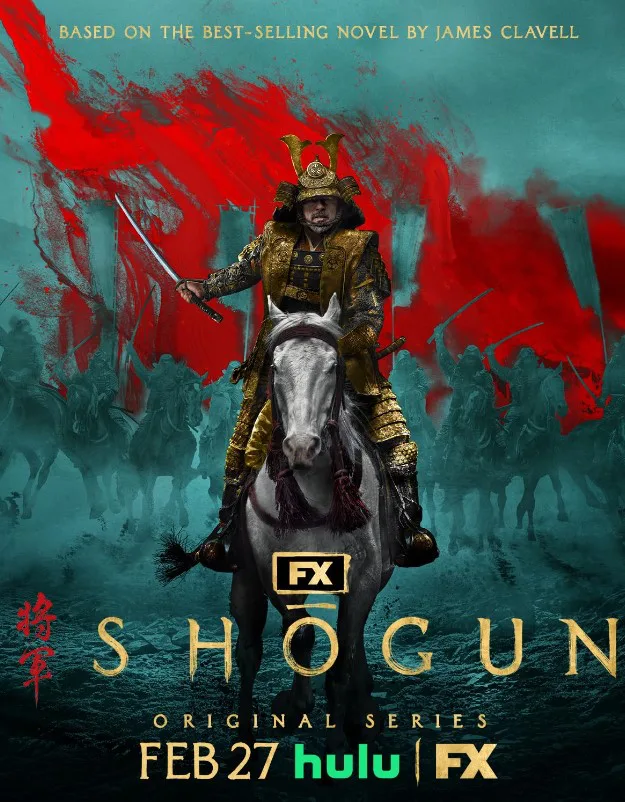With the current abysmal streaming landscape where shows are thrown onto services to collect dust like old VHS tapes, it’s impossible not to feel like TV has been in need of shows that feel like an event. The times of epics like “Breaking Bad” are long over, as are the times where series were able to sustain more than 10 episodes. However, there are still writers and directors who are attempting to craft television shows that feel epic, though some do it more successfully than others.
It’s clear from the first episode that FX’s “Shōgun” is one of these shows. From its sprawling monologues to its expertly crafted sets, the series stands out immediately in a landscape where content appears to be more important than art. Throwaway dramas are nothing compared to this, and as the epic tale slowly unfolds, the series is able to stand out as a titan amongst its peers.
Based on the James Clavell novel of the same name, “Shōgun” feels more like a reinvention of the text it’s based on rather than an adaptation. Creators Rachel Kondo and Justin Marks strip Clavell’s text from its original pages and create something not only magnificent, but wholly original. The bones of the story are there—the series follows English sailor John Blackthorne (Cosmo Jarvis) after he lands on the shores of feudal Japan—but there’s a spark that the book was not necessarily lacking but proved hard to translate onto television previously with the 1980 miniseries.
Blackthorne’s appearance sparks an unlikely alliance with Lord Toranaga (an always magnetic Hiroyuki Sanada) who faces a challenge from his fellow lords as they fight to attempt to become Japan’s next leader. The two men’s stories are connected by Mariko (a revelatory Anna Sawai), an outcast from a notorious family who is assigned by Toranaga to serve as Blackthorne’s translator. These separate stories of political strife soon become a finely woven tale of interpersonal relationships and three individuals striving for power, proving that this rendition of Clavell’s work has been expanded for the screen. It works almost perfectly and feels like a fresh take not only on the novel, but the first time this story was put to screen as well.
These interwoven character arcs are what truly makes the series shine. Clavell’s novel is broken down and forced to take a far broader view than its predecessor, moving beyond the Western outsider’s perspective that dominated the original work and instead allowing the show’s Japanese characters to become fleshed out individuals in their own right. Both parties are not only confused by the other, but enamored all the same, striking down an orientalism that–if this were released a decade ago–would have undoubtedly been present.
The character dynamics in this rendition of Clavell’s story are not only more intriguing, but more emotional as well. This new rendition allows us to connect to characters beyond the trio of protagonists, from dominant players like Kashigi Yabushige (Tadanobu Asano), the lord of Izu, to Usami Fuji (Moeka Hoshi), a widow who must reinvent herself to survive. These two characters are a perfect example of Kondo and Marks’ talent, allowing these secondary figures to become as interesting as the series’ leads, in turn allowing Asano and Hoshi to spotlight their talents.
One of the few downsides of the series is that it isn’t nearly long enough. It’s understandable that in the current TV landscape, the safest bet would be to craft a show like this as a miniseries, but a show like “Shōgun” frankly deserves more than one season. The story is so rich with political tendrils that unfurl into bigger and broader ideas, that it would be more than possible for its story to be stretched. While a second season would have been welcomed, what we get is a tight-knit epic that feels beyond anything that’s hit our TV screens in years.
“Shōgun” is already being compared to titans like “Game of Thrones,” and while there is political scheming, that is about the only thing the two series have in common. FX’s newest series is good enough to stand in its own right, a swirling drama filled not with dragons but instead with characters who use words as their strength. Comparing it to the HBO fantasy drama doesn’t necessarily make sense, and in turn almost does a disservice to the show. They are wholly different in what they’re not only trying to achieve, but also what they are trying to say about survival and belonging in a society rife with conflict.
In a television landscape that’s incredibly unpredictable, it’s going to be impossible for “Shōgun” to get lost amongst the dozens of shows relegated to streaming services. Each conversation is as engaging as the battles that shortly follow. The dialogue is rich with context and subtext, written in a way that makes it clear that each and every person, from behind the scenes to those in front of the camera, cares about this story. “Shōgun” is a rich text that has been expertly reinvented for the screen, proving that shows of this likeness can not only still be made, but can still achieve greatness.
“Shōgun” premieres on FX on February 27th. Eight episodes screened for review.




















